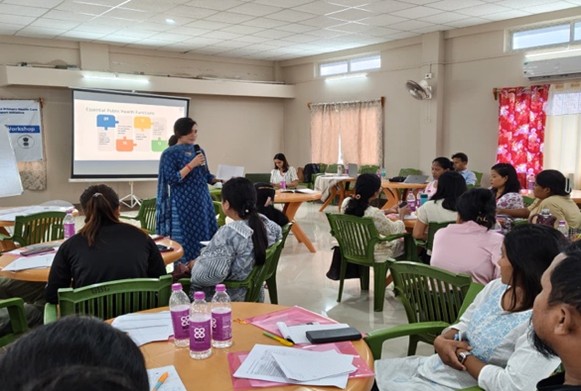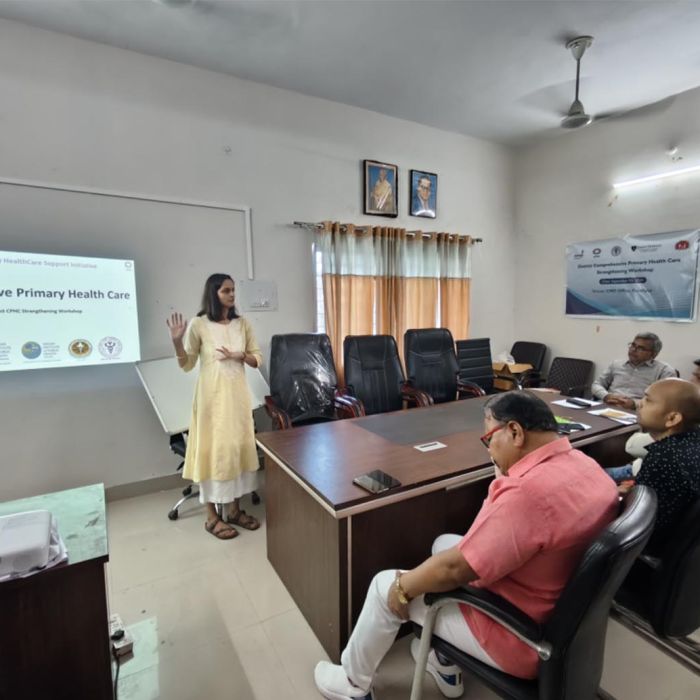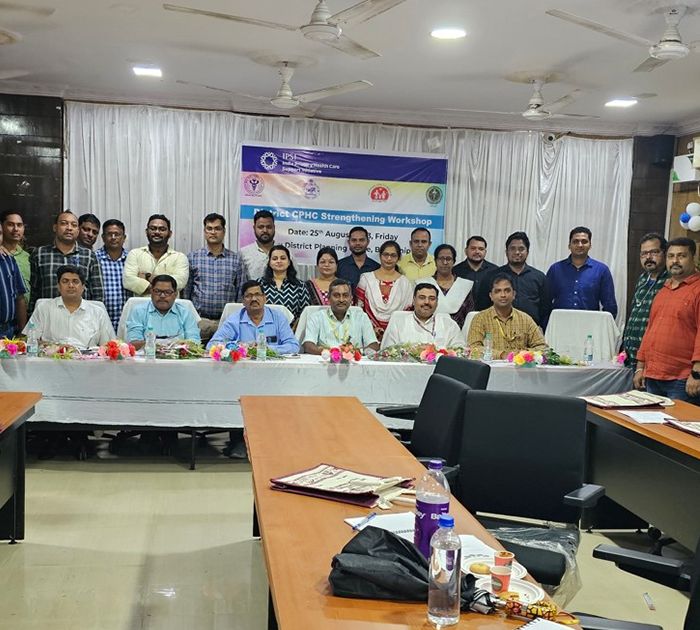The capacity building component of the IPSI project is aimed at enhancing the technical capabilities of stakeholders in district health systems and local partners focused on primary healthcare. AIIMS-New Delhi is leading this project component.
The capacity building process began with a pilot ‘Primary Health Care’ course in April 2022, engaging community medicine postgraduates, senior residents, and nominated medical officers. Subsequent Joint Learning Visits and collaborative workshops in three districts informed the development of tools for training needs assessments and strategic planning of CPHC workshops, addressing distinct audience needs. Subsequently, Training Needs Assessment (TNA) and landscaping of trainings were conducted in West Garo, Kalahandi, and Bhavnagar districts. Led by the AIIMS New Delhi team, with support from state partners, the objectives included situational analysis of current trainings, identifying training needs for CPHC, and prioritizing them for inclusion in the district training calendar.
The TNA and landscaping exercise identified potential areas for capacity building under CPHC. Recognizing the necessity for orientation on CPHC, training sessions were planned and conducted in three districts. The CPHC workshop content was collaboratively developed with input from state partners and included group exercises with case scenarios derived from real-life examples. These sessions covered core CPHC principles, teamwork, data-driven decision-making, community engagement, and essential public health functions. Participants engaged in interactive exercises, gaining practical insights and analytical skills crucial for effective CPHC implementation. The workshop provided a comprehensive understanding of CPHC’s importance in the Indian context and empowered participants to develop practical strategies for achieving its goals.
Based on district priorities and grassroots needs, two additional focus areas have emerged: quality improvement (QI) and data utilization for decision-making. Ongoing efforts and insights from the HWC database across all three districts will also inform the content development in addition to the existing module on data for decision-making within the CPHC workshop incorporating and emphasizing data use for local decision-making and program review and planning.
For QI, a comprehensive strategy will be employed to enhance district-level QI capacity and improve service quality, in line with the HWC service packages. This strategy aims to cultivate a culture of continuous improvement in primary healthcare. The content will include QI process steps, methods, tools, project design with practical examples, and success stories from other districts. Following this, we will implement these initiatives in select facilities within their respective districts. This QI program aims to test and institutionalize a QI model within the primary healthcare system, demonstrating the use of QI methods and tools to improve coverage indicators.





